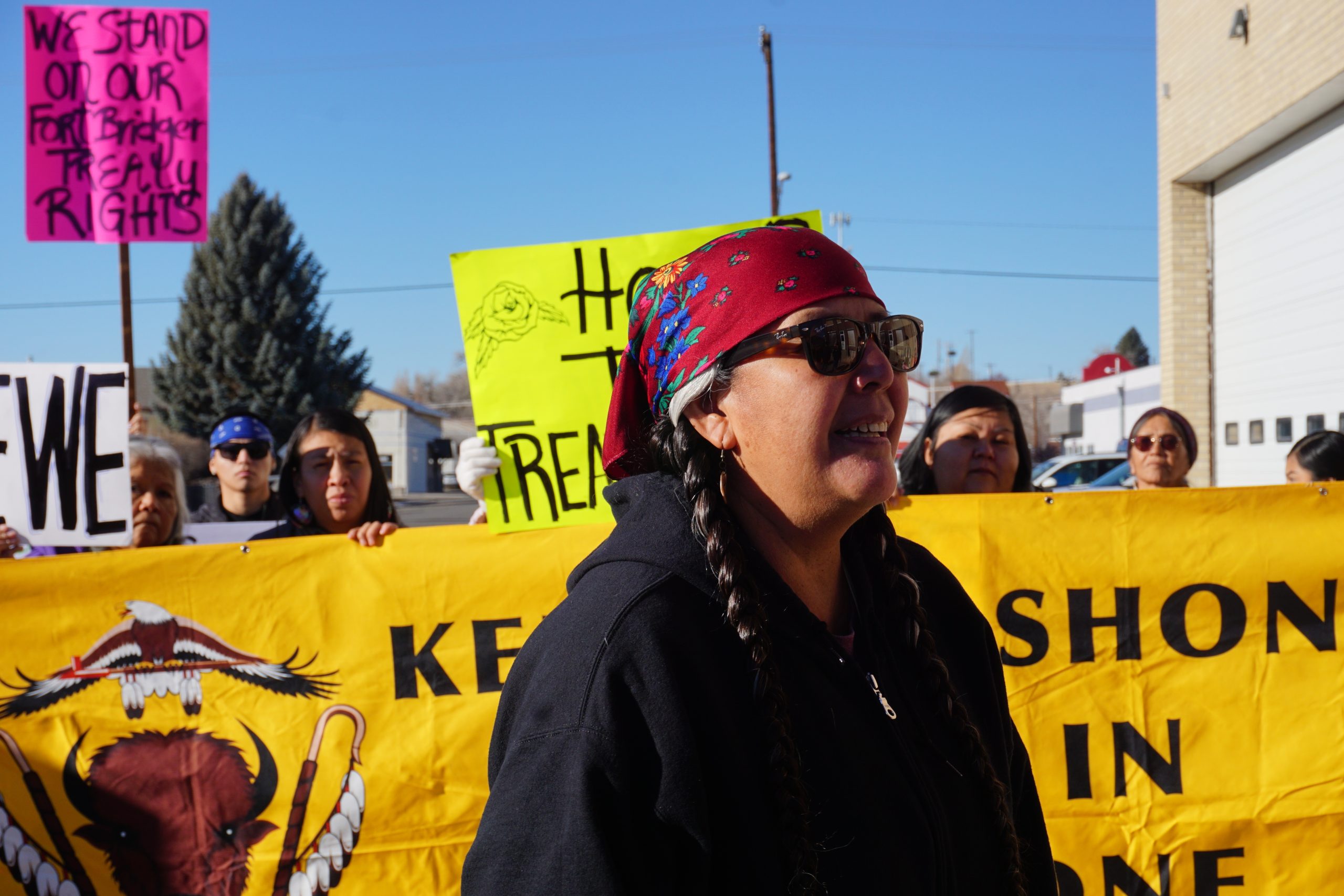Podcast: Play in new window | Download | Embed
Photo: Darryl George. (Courtesy MOBB United for Social Change, Inc. / Facebook)
Several multicultural organizations have submitted an amicus brief – or friend of the court filing – in a case involving a Black family and a Houston-area school district.
The brief endorses Darryl George, a Black high school student who supporters say was suspended from the Barbers Hills Independent School District in his junior year, due to his long hair.
Attorneys for the family say this violates the 2023 Texas Crown Act, which prohibits schools from discriminating against hair styles and textures associated with race and cultural identity.
Malia Gesuale is with the Native American Rights Fund (NARF).
She says with the law on the family’s side, she expects George to win in Texas appellate court.
Gesuale added that this case is relevant for hundreds of Native American tribes as well.
“Hair is incredibly important for many Native people. Hair is deeply associated with cultural and religious beliefs. It’s a symbol of moral strength. It can be a very personal choice, for how a Native person wants to present themselves. We understand that students across the country, and particularly in Texas want to be able to wear their hair long in representation of that heritage.”
Groups behind the amicus brief include the National Congress of American Indians which NARF represents, as well as Black Parents and Families Collective and the ACLU of Texas.
The school’s suspension of George is also regarded as a violation of the first and fourteenth amendments.
The Barbers Hills district has continued to defend its dress code.

Eastern Shoshone tribal member Felicia Alvarez stands in front of protestors near the Riverton office of U.S. Sen. John Barrasso. (Photo: Hanna Merzbach / Wyoming Public Media)
Eastern Shoshone and Northern Arapaho tribal members protested outside of the office of U.S. Sen. John Barrasso (R-WY) in Riverton, Wyo. Thursday.
Wyoming Public Radio’s Chris Clements reports the protest was over the defunct Pilot Butte Power Plant, which sits on the Wind River Reservation, but is currently owned by the Bureau of Reclamation.
Last year, Sen. Barrasso filed a bill that would transfer the plant to a non-tribal irrigation district so it can be used to generate power for Fremont County.
Residents of the Wind River Reservation say they were never consulted about the transfer, and that they oppose it.
Felicia Alvarez is Eastern Shoshone.
“No more taking, no more stealing. We sold enough. They’re doing this underhandedly, without our consent.”
Nicole Wagon is Northern Arapaho.
“The Pilot Butte Conveyance Act is another in a long line of violations against the 1863, 1868 Eastern Shoshone treaties.”
In an emailed response, Barrasso said he’s “been in contact with members of both … tribes as the bill has advanced in the Senate.”

(Courtesy Lake County Sheriff’s Office)
There’s been a fight between county and state officials in Montana over who should fund law enforcement on the Flathead Reservation.
Montana Public Radio’s Aaron Bolton reports a state supreme court ruling Tuesday settled the dispute.
Lake County officials have long said taxpayers can no longer afford the 4 million dollar price tag of providing law enforcement on tribal lands. Under a deal known as public law 280, the county is responsible for jailing and prosecuting tribal members accused of felony crimes.
The county sued the state arguing that because it’s also a part of the deal with the federal government, it bears some fiscal responsibility.
A lower court ruled that it’s up to state lawmakers whether they want to fund the county’s law enforcement on tribal lands.
State lawmakers did pass funding, but Gov. Greg Gianforte (R-MT) vetoed the legislation.
The supreme court agreed with the lower court, and said the county can also opt out of providing law enforcement for tribal members altogether.
The county did try to do that, but Gianforte refused to sign off, claiming it didn’t file the proper paperwork.
Get National Native News delivered to your inbox daily. Sign up for our daily newsletter today.



